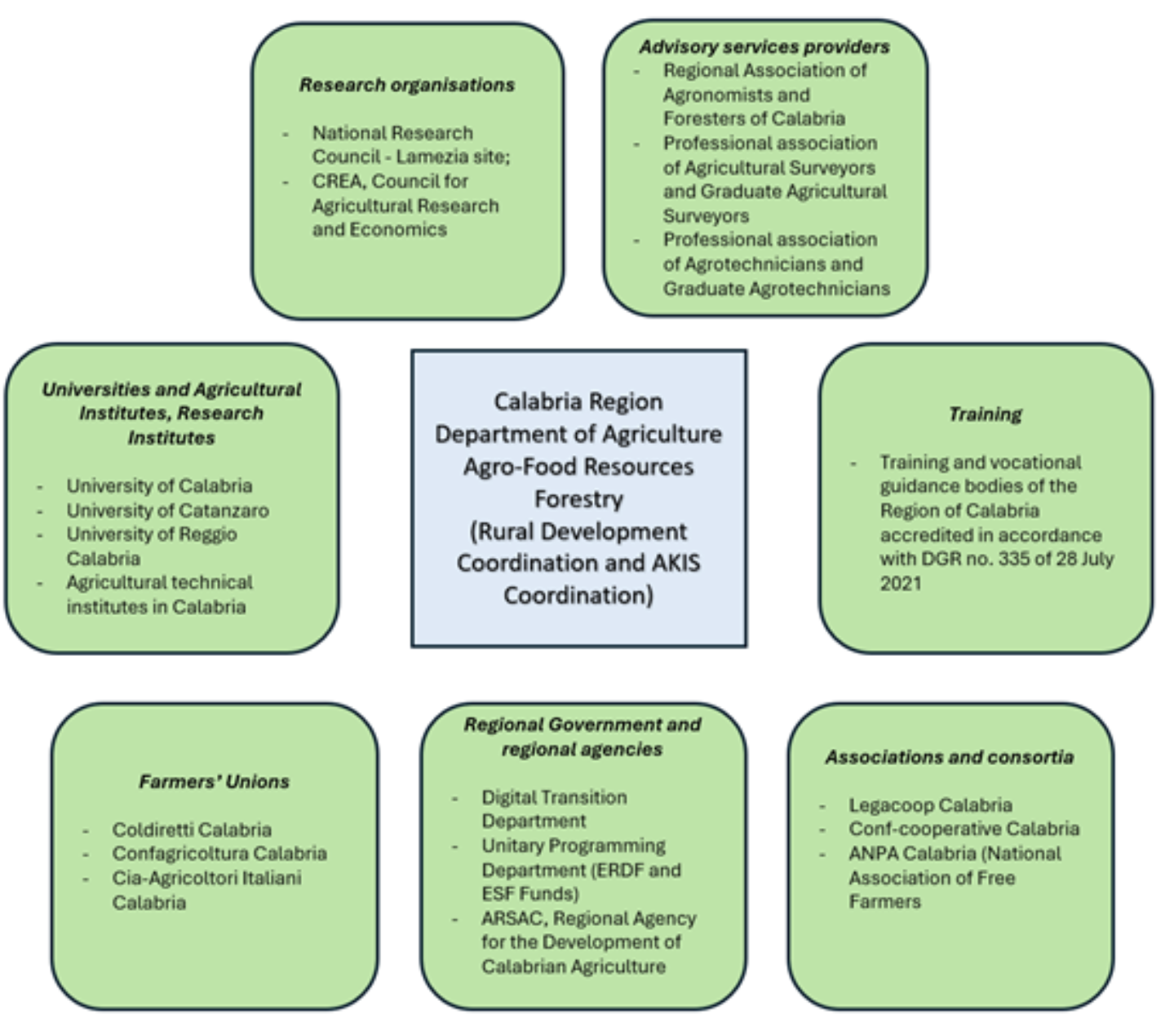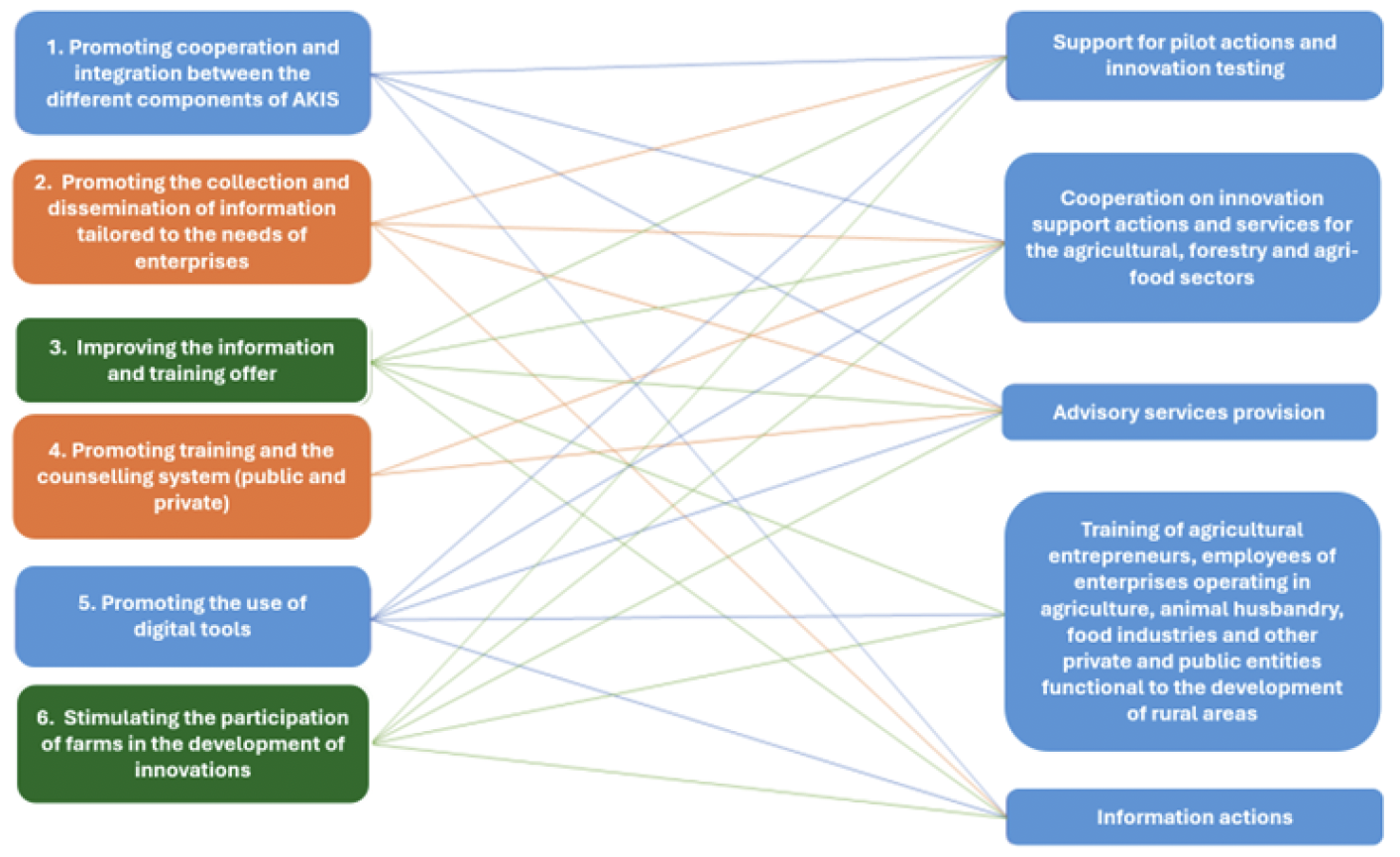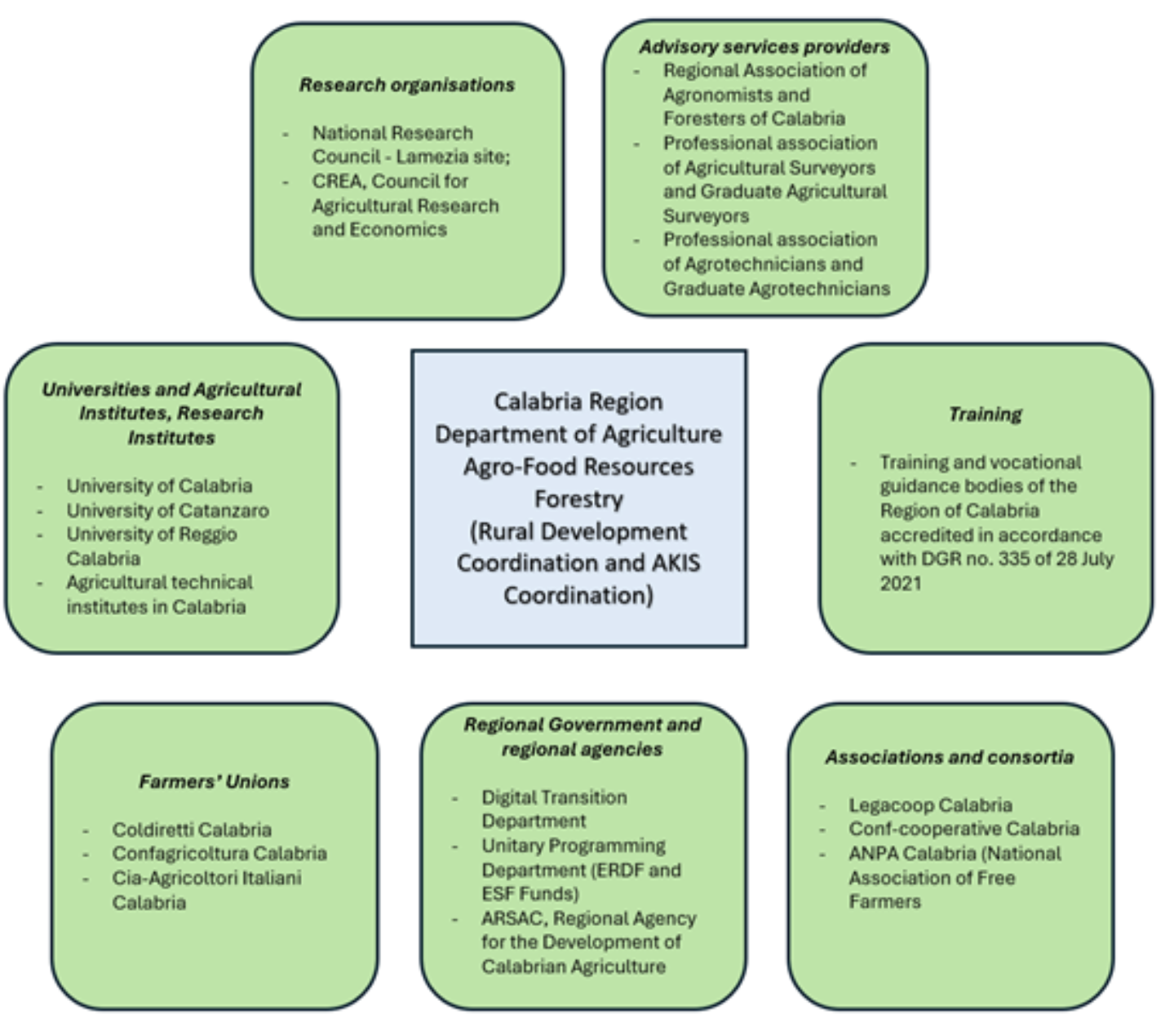2024
AKIS coordination bodies
governance

The AKIS (Agricultural Knowledge and Innovation System) strategy of Rural Development Complementary Programme (RDCP) of Calabria Region aims to enhance the competitiveness and sustainability of the agricultural sector in Calabria. Its primary objectives include fostering collaboration among various stakeholders, such as farmers, researchers, and extension services, to promote innovation and knowledge transfer. The strategy seeks to address local agricultural challenges by improving access to information and technology and facilitating training and education. Additionally, Calabria Region seeks to stimulate and strengthen farms participation in technological innovation processes, fostering greater competitiveness and sustainability and improving quality of life in rural areas, including the provision of digital services to counteract depopulation.
The AKIS-related interventions outlined in the Calabria Region 2023-2027 RDCP build upon the successful outcomes of the 2014-2022 programming, incorporating enhancements based on previous experiences to enhance their effectiveness further:
Figure 1: Cross-sectional AKIS Objective: Needs and Interventions

Source: Calabria RDS 2023-2027
The significant policy importance of AKIS strategies within the context of the CAP 2023-2027 Strategic Plans has underscored the need to establish governance bodies to coordinate AKIS-related interventions and actors, improving implementation and contributing to the overarching and specific CAP objectives.
The AKIS coordinating body is designated by the Strategic Plan as the European Commission and EU CAP NetworkÕs contact point.
In Italy, due to the new distribution model, unlike previous programming periods, the CAP SP In Italy, as a result of the new delivery model and unlike previous programming periods, the 2023-2027 CAP SP is established solely at the national level. However, as Regions/Autonomous Provinces hold agricultural competency under the Constitution, they have set up Complementary Rural Development Programs (RDCPs), which, under the CAP SP framework, have their own governance structures and implement rural interventions relevant to their specific territories at the local level.
This programming approach means that Italy includes one AKIS strategy and a CAP SP-level AKIS coordination body (Chapter 8 of the CAP SP; General Directorate of Rural Development of the Ministry of Agricultural Policies, Food Sovereignty, and Forestry) along with regional AKIS strategies and corresponding AKIS coordination bodies for each Region and Autonomous Province.
The general model of AKIS coordination bodies for Italy is indicated by the CAP SP that mentions a mix of "institutions that have the responsibility/capacity to provide training, advisory services, research, information". Lately, in mid-2024, the Ministry of Agriculture established a national AKIS coordination model which calls for a collective body, composed by representatives of the variety of key AKIS actors.
Under this national framework, Calabria Region established a Regional AKIS Coordination Body, chaired by the Regional Ministry of Agriculture and Agri-Food Resources and Forestry, with the dual purpose of fostering discussion and connections between different institutions and promoting necessary functional relations among AKIS stakeholders. This body will also facilitate information flow across regional, national, and European levels.
1. Who is the AKIS CB
The Regional AKIS Coordination Body for Calabria Region 2023-2027 RDCP is a collegiate body established under Regulation (EU) No. 2021/2115, with representation from all entities that offer and provide training, advisory, research, information, and digital services.
2. Composition of the AKIS CB
Chaired by the Regional Ministry of Agriculture and Agri-Food Resources and Forestry, the Regional AKIS CB includes representatives from each regional AKIS actor category, ensuring the proper implementation of interventions for agricultural knowledge, innovation, and digitalization (Fig. 2).
Figure 2: Composition of the Calabria Region AKIS CB

Source: our elaborations on Regional Council Resolution No. 371 of July 25, 2024
3. Functions attributed to the AKIS CB
The Regional AKIS CB's functions include:
4. Procedures for interplaying with other AKIS actors and with the MA of the CAP SP
The AKIS coordination body will convene periodically to ensure effective oversight and monitoring of the AKIS Strategy progress, fostering a collaborative environment for ongoing evaluation and strategic alignment.
Moreover, the Regional CB will engage with the ESF and ERDF MAs on appropriate themes and will be responsible for coordinating policy definition and implementation for innovation and knowledge within the agro-food and forestry sectors in the region.